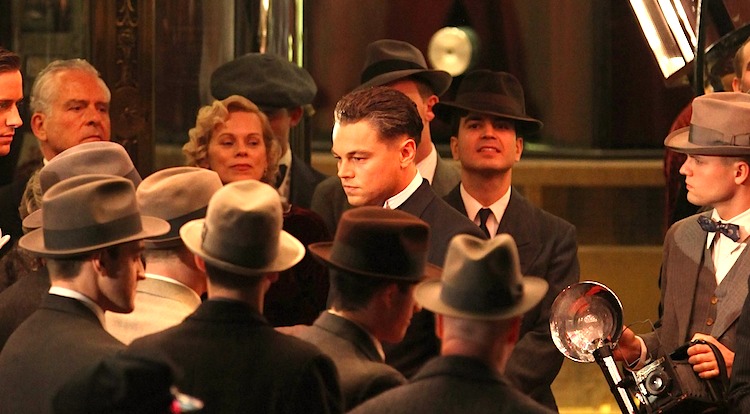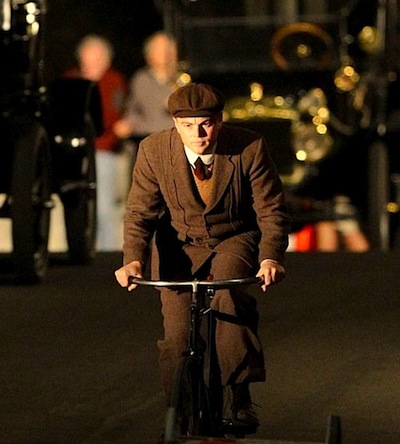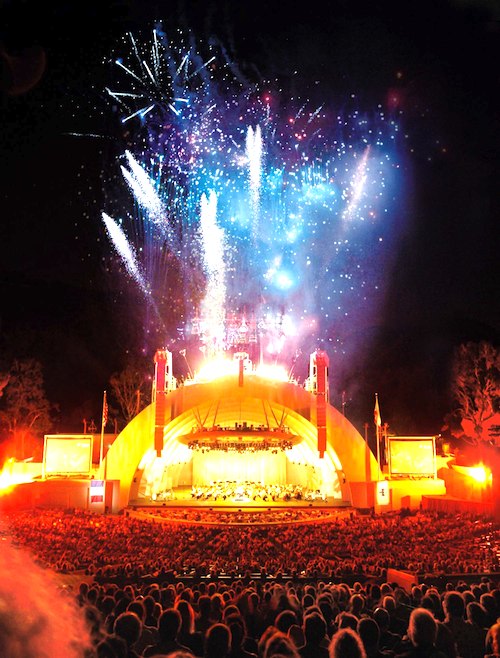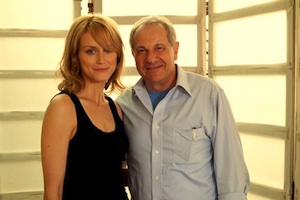
By Jason Apuzzo. • I had the opportunity recently to read Dustin Lance Black’s screenplay for the new Clint Eastwood-Leonardo DiCaprio film J. Edgar, set for release this October. Even though the film covers a fair bit of Cold War history, in terms of the FBI’s handling of communist infiltration, due to the fact that J. Edgar covers Hoover’s full professional story – from his rise in the late 1910s all the way through to the Nixon years – I’ve decided to talk about the screenplay outside the context of one of our regular Cold War Updates!. I would love to give the screenplay an even more exhaustive write-up, frankly, but due to my own time constraints I’ll have to keep things brief – and focus primarily on what the film will be saying about the anti-communist struggle.
I’ve decided to write about this screenplay publicly because it’s covering extremely important areas of history – 50+ years of it, in fact, dwelling on issues of law enforcement and privacy that still resonate with us today – and also because we’re dealing here with an actual historical figure, with a very public record. (I’ll also try to keep things here as spoiler-free as possible – with the understanding, again, that we’re dealing with Hoover’s long public record.) People should know, frankly, how the man who founded the FBI and shaped a large part of 20th century American domestic history is going to be portrayed.

There’s a lot to like about J. Edgar in its first act. Hoover’s colorful rise is set against the struggle over communist infiltration of American society during the late teens and early ‘20s – a struggle rarely covered in cinema, as most people assume (mistakenly) that Soviet agents only first hit our shores during the 1930s. The screenplay actually begins with the bombing of Attorney General Mitchell Palmer’s home by communist/anarchist saboteurs in 1919, and we see famous figures like the young FDR and Dwight Eisenhower pour out onto the street in the aftermath – as a peppy, ambitious young Hoover arrives on a bicycle and begins piecing together clues over the bombing. In fact, if you’ve seen early set photos of DiCaprio as Hoover on a bicycle (see right), those images are likely from this opening sequence of the film – a sequence that sets the tone and mood of the film with America under a constant sate of siege (first from communist agents in the 1920s, then from criminal mobs in the 1930s, and finally from Soviet agents again from the late 1930s forward). We see Hoover and his maverick team take down Emma Goldman and a violent gang of communist-anarchist saboteurs, and Hoover begins to put the policies and procedures of modern criminal investigation in place.
The communist/anarchist saboteurs in this section of the film, incidentally, are not depicted as terribly pretty people. They’re made to look dangerous and deceptive – not as victims of a witch hunt, or martyrs. In fact, with their bomb-making factories, and attempted gamesmanship of the legal system, obvious parallels will be drawn with today’s Islamic terrorists. The message here couldn’t be more plain: a robust federal investigative force is needed to face down this threat, and ensure domestic security. Continue reading EXCLUSIVE: Libertas Reviews the Clint Eastwood-Leonardo DiCaprio J. Edgar Hoover Screenplay







